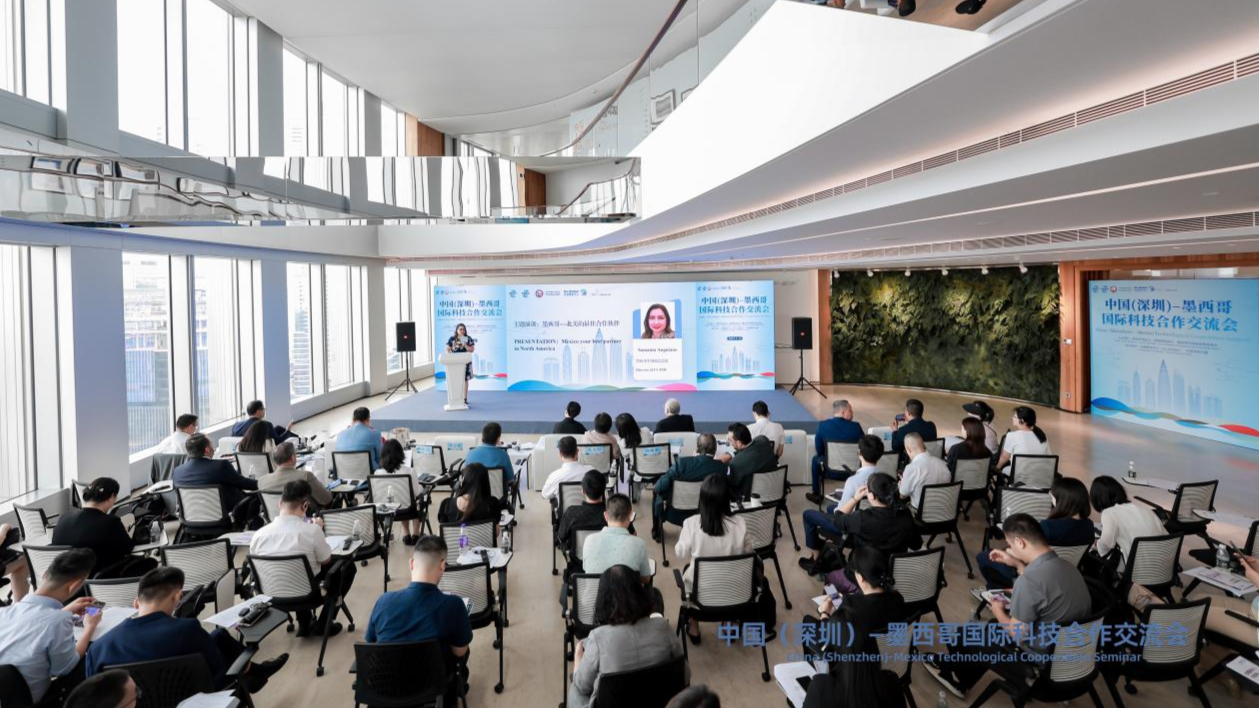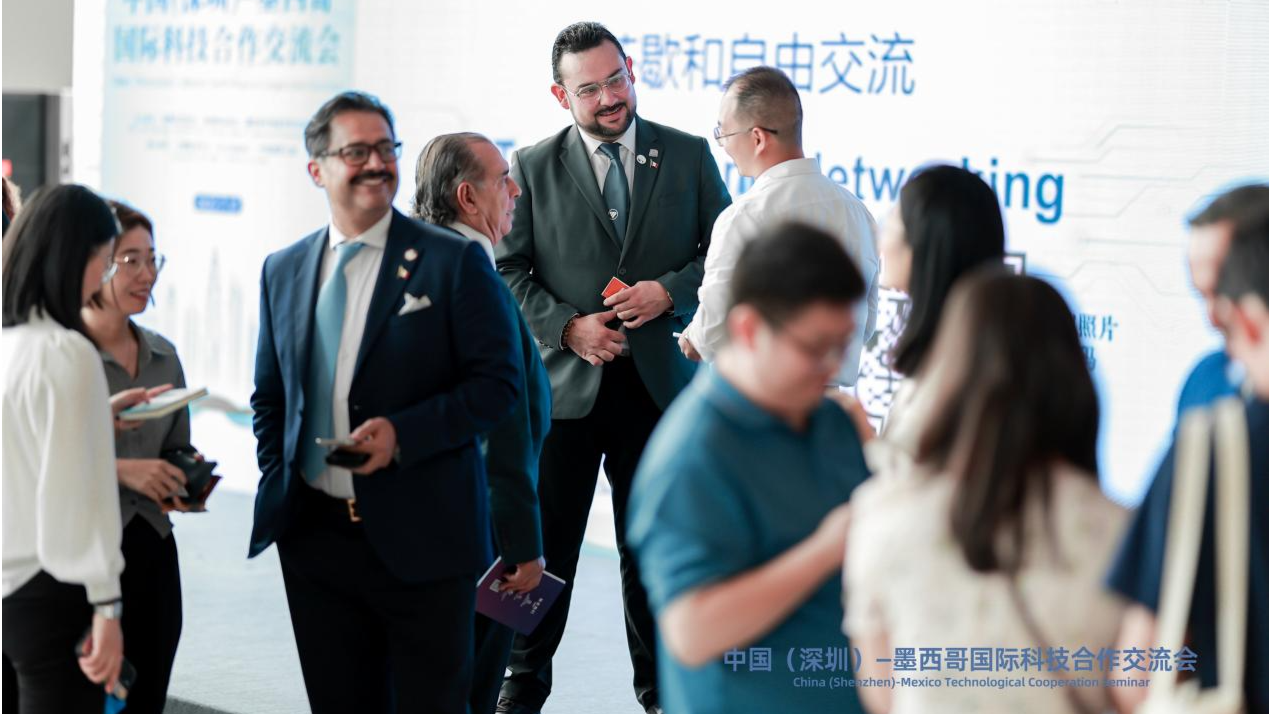
As Mexico emerges as a preferred choice for Chinese companies expanding globally amid economic challenges, representatives from the North American country look forward to increased investments from the tech-savvy Guangdong-Hong Kong-Macao Greater Bay Area (GBA), and pledged holistic assistance for local firms’ outbound reaches.
The representatives conveyed their expectations during the China (Shenzhen) - Mexico Technological Cooperation Seminar, which was held in Shenzhen’s Nanshan district on Tuesday. As the second-largest economy in Latin America, Mexico attracted a record $36.8 billion in foreign direct investment last year, with technology manufacturing, clean energy, cross-border e-commerce, auto parts, and medical devices becoming key areas of interest.
Amid the current wave of global supply chain restructuring, Mexico — a key economy within the North American Free Trade Zone — has become an important transit hub for multinational capital. Chinese companies are also entering this hotspot with intensifying investment.
READ MORE: Mexico seeks tariff relief for auto exports beyond trilateral framework
Carlos Giménez, Consul for Promotion of the Consulate General of the United Mexican States in Guangzhou, said that with its proximity to the United States (US), Mexico is an ideal “nearshore” location, attracting enterprises wishing to relocate their operations for easier access to the US market.
He said that companies in the Greater Bay Area are dedicated to quality improvement and technological innovation, place considerable emphasis on environmental sustainability and can effectively handle the growing challenges within the global market.
The diplomat said that the Mexican government is prioritizing infrastructure development, which is generating a demand for collaboration in high-tech related areas, and enterprises seeking a stable market, skilled talent, and a reliable supply chain to tap into the thriving market are welcome.
China is Mexico's second-largest global trading partner. Bilateral trade between Guangdong and Mexico surpassed $20 billion in 2023, reaching $11.45 billion in the first half year of 2024 and marking a 19 percent year-on-year increase.
Last May, a direct passenger flight between Shenzhen and Mexico City — the nation’s capital and its largest city — was inaugurated. Spanning a distance of over 14,000 kilometers, the route, operated by China Southern Airlines, is the longest direct international passenger air route in Chinese civil aviation history.

Shenzhen-headquartered companies like Huawei, ZTE, and BYD are also deeply integrating into the Latin American industrial chain through the Mexican market.
During the Tuesday seminar, Lorena Cavazos, economy secretary of Nuevo Laredo, a Mexican city that borders the US, said the city boasts a robust industrial infrastructure and a convenient cross-border logistics network, which can provide crucial support for Chinese companies to expand into the North American market.
Yareli Ramos, recruitment director at Avalon Executive Group, a Mexican recruitment agency, highlighted the need for Chinese firms to build local teams in Mexico. She said that her company offers recruitment services in Chinese, English, and Spanish, and can help companies quickly integrate into the local market.
Gathering government officials and business leaders, the seminar also invited representatives from Shenzhen companies to explore business opportunities. Qin Yue, a foreign trade manager for Ezhan, a startup that focuses on mobile robots, said the company’s latest cargo-carrying robot has been well-received in Asian markets including India, Singapore, and the Hong Kong Special Administrative Region.
READ MORE: US imposes 17.09% duty on Mexican tomatoes, withdraws from 2019 deal
In addition to warehouse operations, this robot can also be used in airports, schools, hospitals, and various other environments. Qin said many Mexican representatives expressed an interest in this product during the exchange event, hoping to leverage this opportunity and the annual Canton Fair to attract a wider overseas clientele.
Chen Shuqin, channel director for Evoc Group, a leading industrial manufacturing supplier, said the company is hoping that its high-end smartwatches and similar consumer-oriented products will become a new growth point, as its traditional industrial products faced challenges during the economic downturn.
At the seminar, Chen learnt that Mexico's dynamic market is characterized by a young demographic, affordable labor, and professional human resources services, making it an excellent fit for promoting their smartwatch. She aims to identify local business agents to help pave the company’s way into the US market.
The event was co-organized by various trade promotion and business associations, with support from Nanshan district's newly-launched Go Global Service Center, which helps foreign companies enter China and assists Chinese firms in expanding internationally.
Contact the writer at bingcun@chinadailyhk.com


